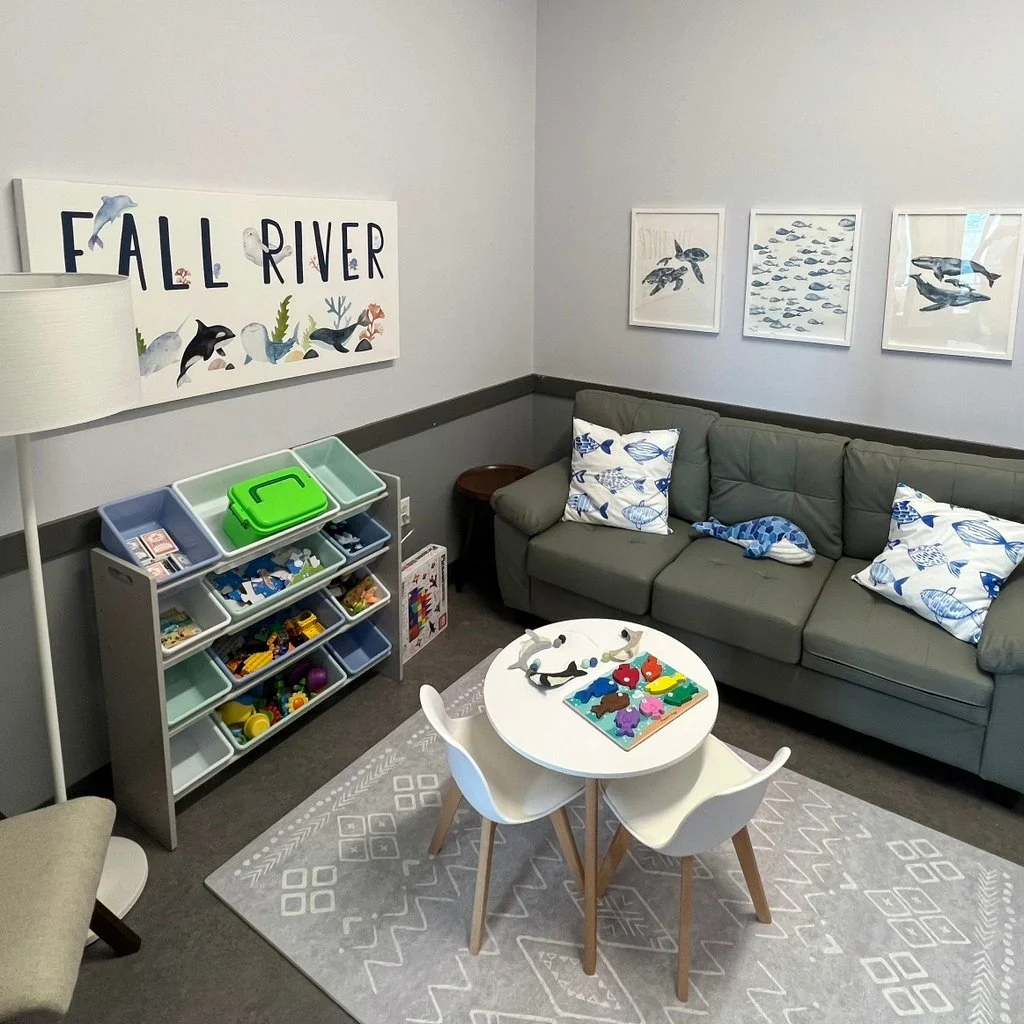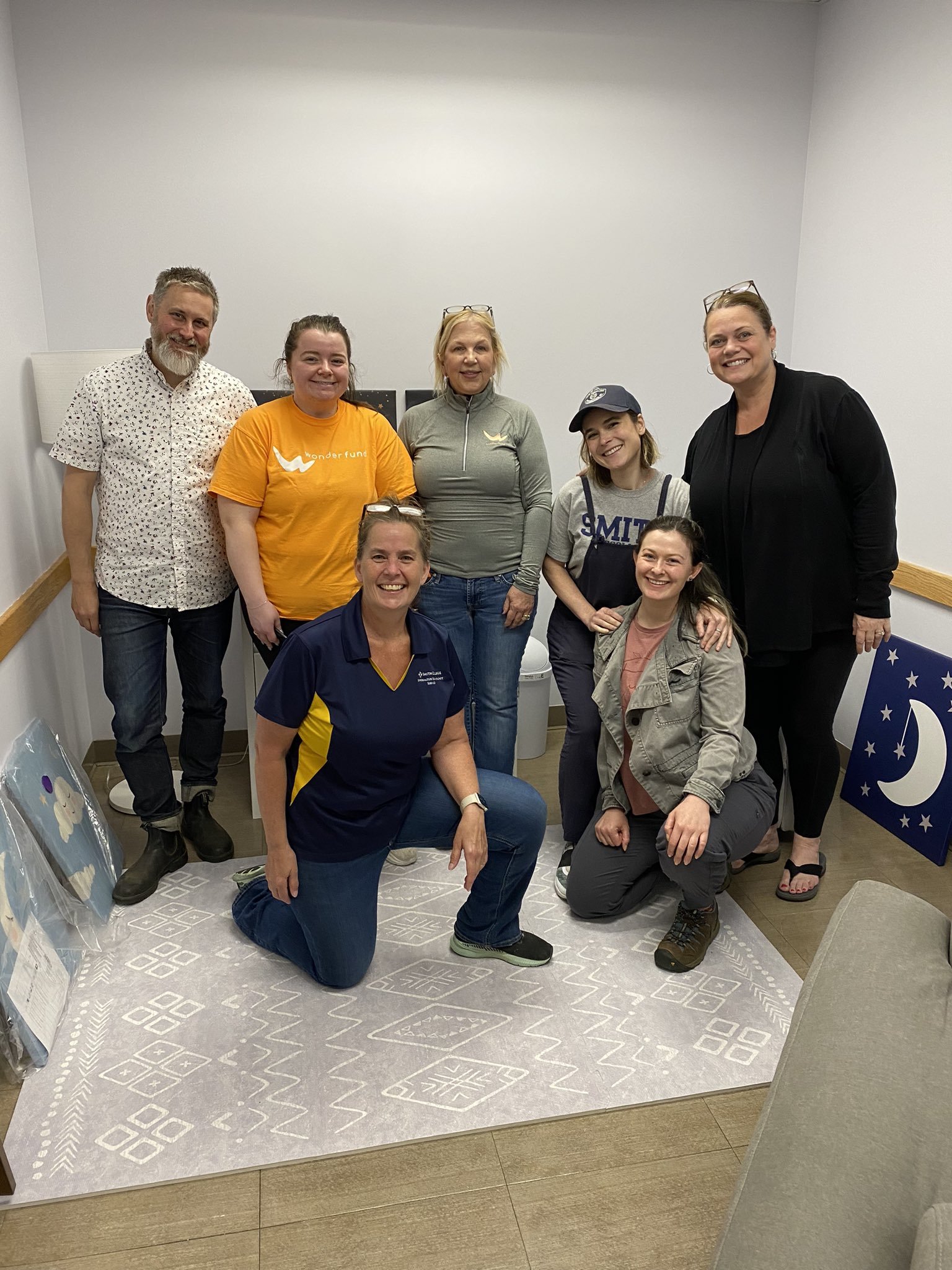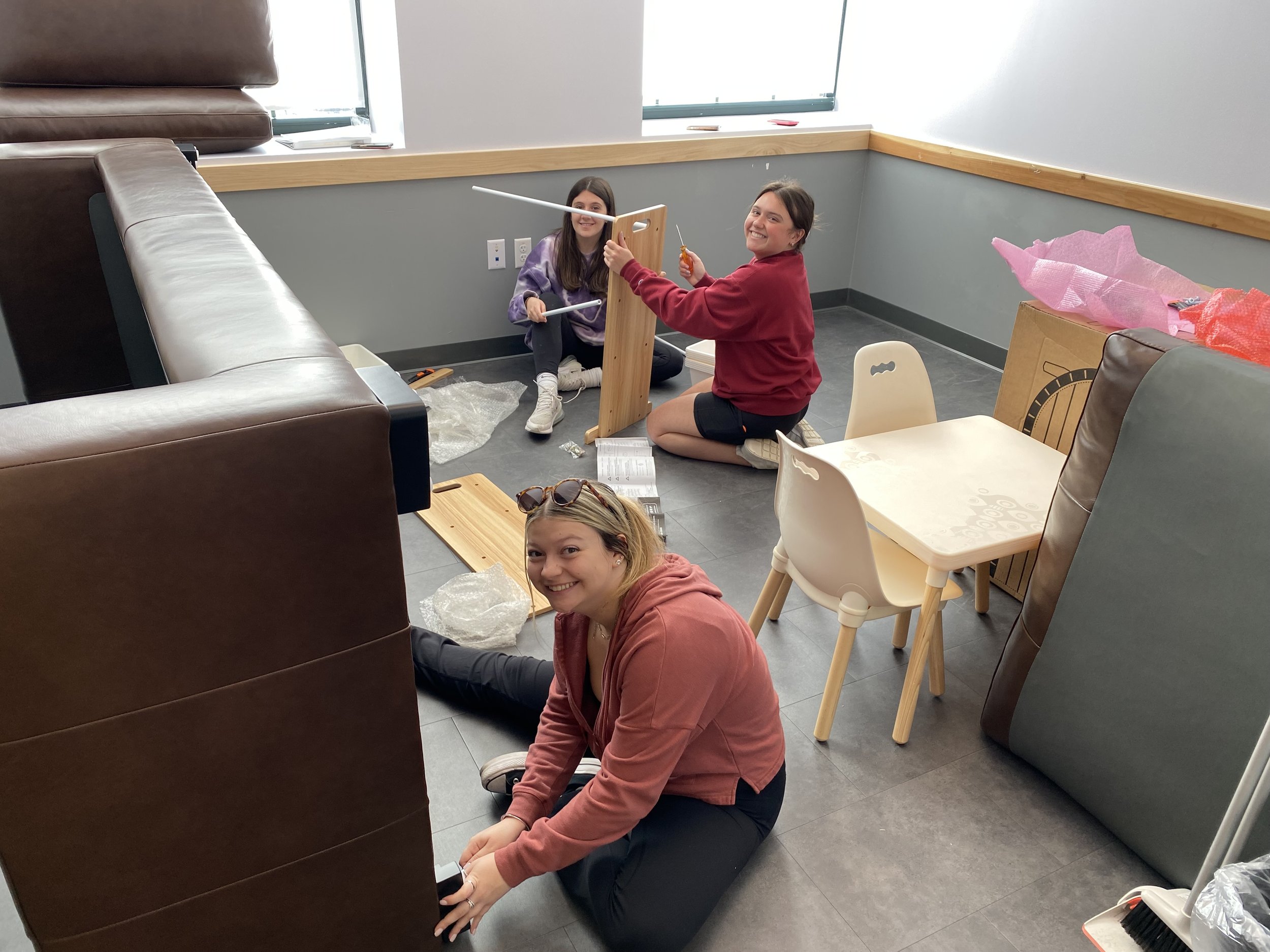
Wonderfund DCF Renovations
PROBLEM: Approximately 50,000 young people across Massachusetts are engaged with the Department of Children and Families (DCF), and many of these children have experienced abuse, neglect, or significant family trauma. These feelings can be reignited when visiting with biological family members, which take place in one of dozens of DCF visitation spaces across the CommonWealth. Unfortunately, while the social workers at DCF to incredible work, the spaces that house them are outside their scope, and these spaces were not designed to ameliorate trauma. DCF buildings traditionally feel like sterile office spaces, with bland walls, fluorescent lighting, and uncomfortable furniture, with no attention paid to the impact of colors, artwork, and design choices.
PARTNERS: We partnered with the Wonderfund, a nonprofit that supports all young people in Massachusetts engaged with DCF, to transform these spaces with trauma-informed design at the forefront.
SOLUTION: We understood the impact that physical spaces have on children and families – and particularly those who have endured trauma – and we saw an opportunity to create family-friendly spaces that could reduce stress, provide natural opportunities for bonding, and rewrite the script for how families felt walking into a DCF office. Together, we set out to renovate every DCF building in Massachusetts, focusing on making simple, trauma-informed design choices, including soft lighting and fabrics, soothing wall colors, and calming visual art. We promote a sense of safety by avoiding clutter and creating clear sight lines. We include age-appropriate games and books for natural opportunities for families to play and read together. And we create sensory-friendly rooms for children with special needs. We execute these transformations ourselves, supported by incredible volunteers from companies and colleges throughout Massachusetts. From sourcing couches that are comfortable and easily cleanable, to framing and hanging wall art, to assembling baby rockers and bookshelves, our teams joyfully transform these rooms in just a few hours at a time.
ADOPTION: As of July 2023, we have renovated 150 family visitation rooms in 21 DCF buildings across Massachusetts, with more to come, and the results demonstrate the impact of trauma-informed design. DCF social workers report that families entering these transformed spaces feel considered, valued, and treated with dignity. And as for the children, their anxiety levels are noticeably down as they enter rooms that are quite literally designed for them, distracted and delighted by the cozy furniture, eye-level art, and sensory toys. This initiative has proven so successful that it has inspired systemic change in the way DCF will plan its new leases going forward, implementing trauma-informed design principles whenever they begin a new build-out. By using money already in the agency’s facilities and procurement budgets, DCF is leading the way in proving that government agencies can make a meaningful difference in the experience of the people they serve – without having to seek additional funding.



